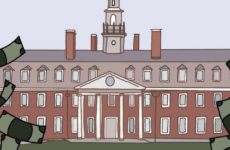First and foremost, it is important that our administration recognize and understand certain aspects of student life. If there are issues that the School can amend, it is imperative to be cognizant of them. In order to accomplish this, the School often organizes adviser meetings to spur discussions and collect feedback. Most recently, the School requested that adviser meetings be held regarding hookup culture and healthy relationships.
However, these conversations, especially those on personal and intrinsically private topics such as sexual relationships, are ineffective. When a topic of discussion between students and adults are centered around hookup culture, students may feel that being asked to share personal information with faculty members — for example, the frequency that students have intercourse — is uncomfortable. In many instances, faculty and students have different opinions about hookup culture, given considerable differences in age, and potentially in beliefs and background, between them. What a student might consider acceptable, a faculty member might consider unacceptable. Of course, people can have different opinions, but when there is an inherent power dynamic at play between those who are discussing the same topic, some may find it difficult to speak openly. Regardless of whether students respond with their own experience or with that of others, hookup culture is a sensitive topic that perhaps is not best discussed with faculty.
Furthermore, when students feel that they simply do not want to respond to such questions or give a limited response as to not reveal personal information — which is a very likely scenario — these conversations accomplish little. In addition, since there is a wide range of experience or knowledge of hookup culture among the student body, students whose responses exhibit a certain degree of experience and knowledge may feel embarrassed or even ashamed in front of adults. Though I understand that this was not the School’s intention, I believe that there could be more effective ways to encourage discussions and collect necessary information for the School to act upon.
A potential alternative could be to organize student-led discussions. If conversations were facilitated as such, students would feel more comfortable communicating honestly and comfortably. Similar to Diversity Day, if conversations about hookup culture were led by students and anonymity was strongly encouraged, student facilitators could gather and share more reliable information with the administration. Furthermore, this could serve as an opportunity for underutilized resources on campus — namely, the Peer Educators — to facilitate pertinent discussions and educate the Choate community.
Again, it is imperative that the School better understands aspects of student life so that it can adequately provide students the necessary support and guidance. However, the School must make discussions about personal and sensitive topics feel safer and more approachable.




